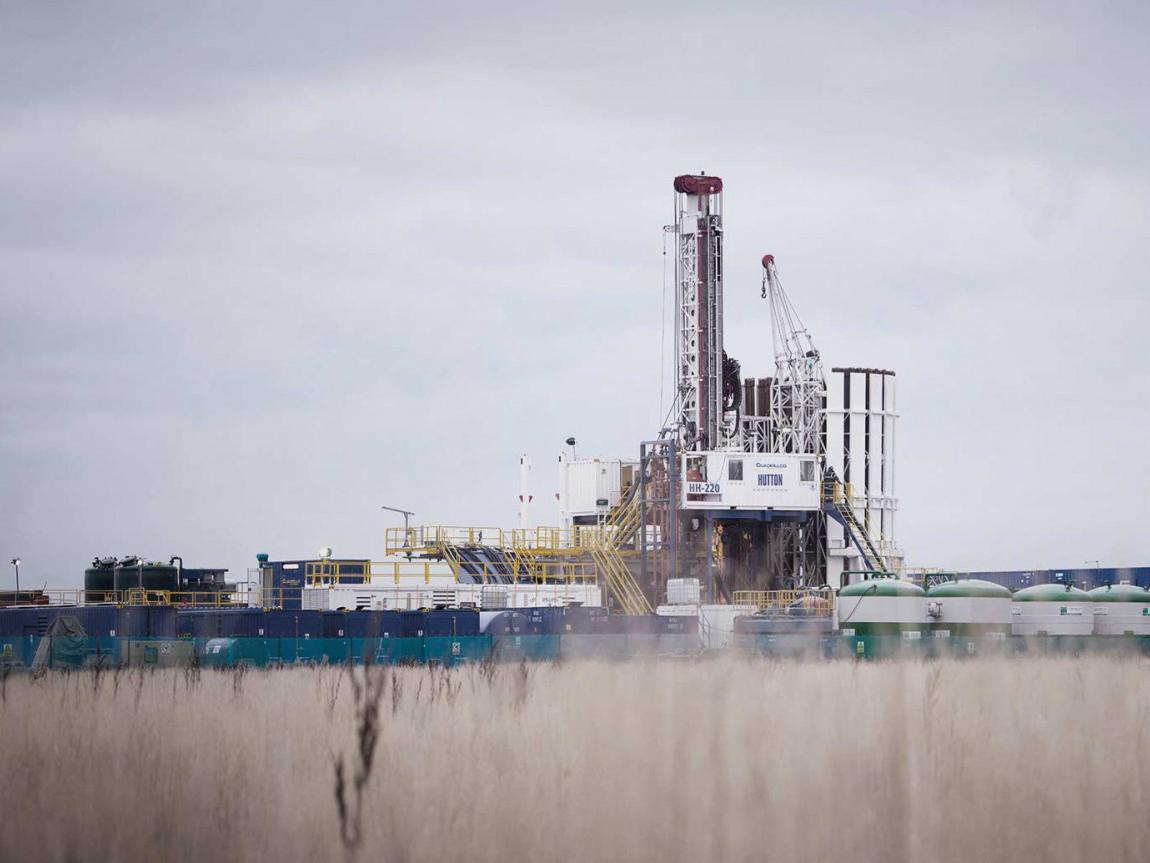UK will miss net-zero greenhouse gas target by decades if Boris Johnson allows fracking, Corbyn warns
Labour is calling on the government to ban the exploitation of Britain's shale gas reserves

Your support helps us to tell the story
From reproductive rights to climate change to Big Tech, The Independent is on the ground when the story is developing. Whether it's investigating the financials of Elon Musk's pro-Trump PAC or producing our latest documentary, 'The A Word', which shines a light on the American women fighting for reproductive rights, we know how important it is to parse out the facts from the messaging.
At such a critical moment in US history, we need reporters on the ground. Your donation allows us to keep sending journalists to speak to both sides of the story.
The Independent is trusted by Americans across the entire political spectrum. And unlike many other quality news outlets, we choose not to lock Americans out of our reporting and analysis with paywalls. We believe quality journalism should be available to everyone, paid for by those who can afford it.
Your support makes all the difference.The UK will miss its net-zero greenhouse gas target by decades if Boris Johnson allows fracking to go ahead, Jeremy Corbyn has warned.
The Labour leader called on the prime minister to impose an immediate ban on the recovery of shale gas as Labour released figures suggesting that full exploitation of the energy source could double national emissions of global warming-causing carbon dioxide (CO2) between now and 2050.
Mr Corbyn will accuse Mr Johnson of “bending the knee” to energy companies as he joins anti-fracking protesters in Lancashire on Tuesday.
According to Labour’s analysis, even if reductions in greenhouse gas emissions continue at their present rate, the UK will not reach net-zero – the level at which production of man-made gases matches the amount that can be removed from the atmosphere by techniques such as forest-planting or carbon capture and storage – until 2099, missing the 2050 target enshrined in law by Theresa May by half a century.
But fracking could push this date back by decades, bringing it into the 22nd century, said Labour.
If all recoverable UK reserves are exploited for energy, this would release 7,485 metric tonnes of CO2 into the atmosphere, the party claimed.
This is only a little short of the total 7,555 metric tonnes which will be released by the whole country between now and 2050 if the UK succeeds in gradually reaching net-zero.
Reaffirming Labour’s promise to ban fracking, Mr Corbyn said: “We need urgent action to tackle the climate emergency, and that means the prime minister immediately banning fracking once and for all.
“Instead of bending the knee to a few corporations who profit from extracting fossil fuels from the ground, we need to change course now. It’s the next generation and the world’s poorest who will pay the price if this Conservative government continues to put the interests of a few polluters ahead of people.
“Tackling the climate emergency cannot be left to the free market. Labour will ban fracking and our Green Industrial Revolution will face the climate emergency head-on and leave no community behind, transforming our country’s energy supply and creating 400,000 good, well-paid jobs across the country.”
Mr Corbyn pointed to a 2015 newspaper column, in which Mr Johnson dismissed as “without foundation” the suggestion that climate change was to blame for a spell of warm weather over Christmas that year, as an indication that the new PM does not take the issue seriously enough.
And he pointed out that newly-appointed environment secretary Theresa Villiers voted against a fracking ban in 2015, while business secretary Andrea Leadsom hailed fracking as a “great opportunity” and urged voters to ignore “scaremongering” over the practice when she was energy minister in 2016.
A spokesperson for Ms Leadsom’s Department for Business, Energy and Industrial Strategy said: “Independent climate experts have recognised that natural gas has a role to play as we meet our 2050 net-zero emissions target – now firmly set in law.
“Exploring the potential of a new domestic energy source is not only compatible with these world-leading climate goals, it could also deliver substantial economic benefits, through the creation of well paid, high-quality jobs.”
Join our commenting forum
Join thought-provoking conversations, follow other Independent readers and see their replies
Comments